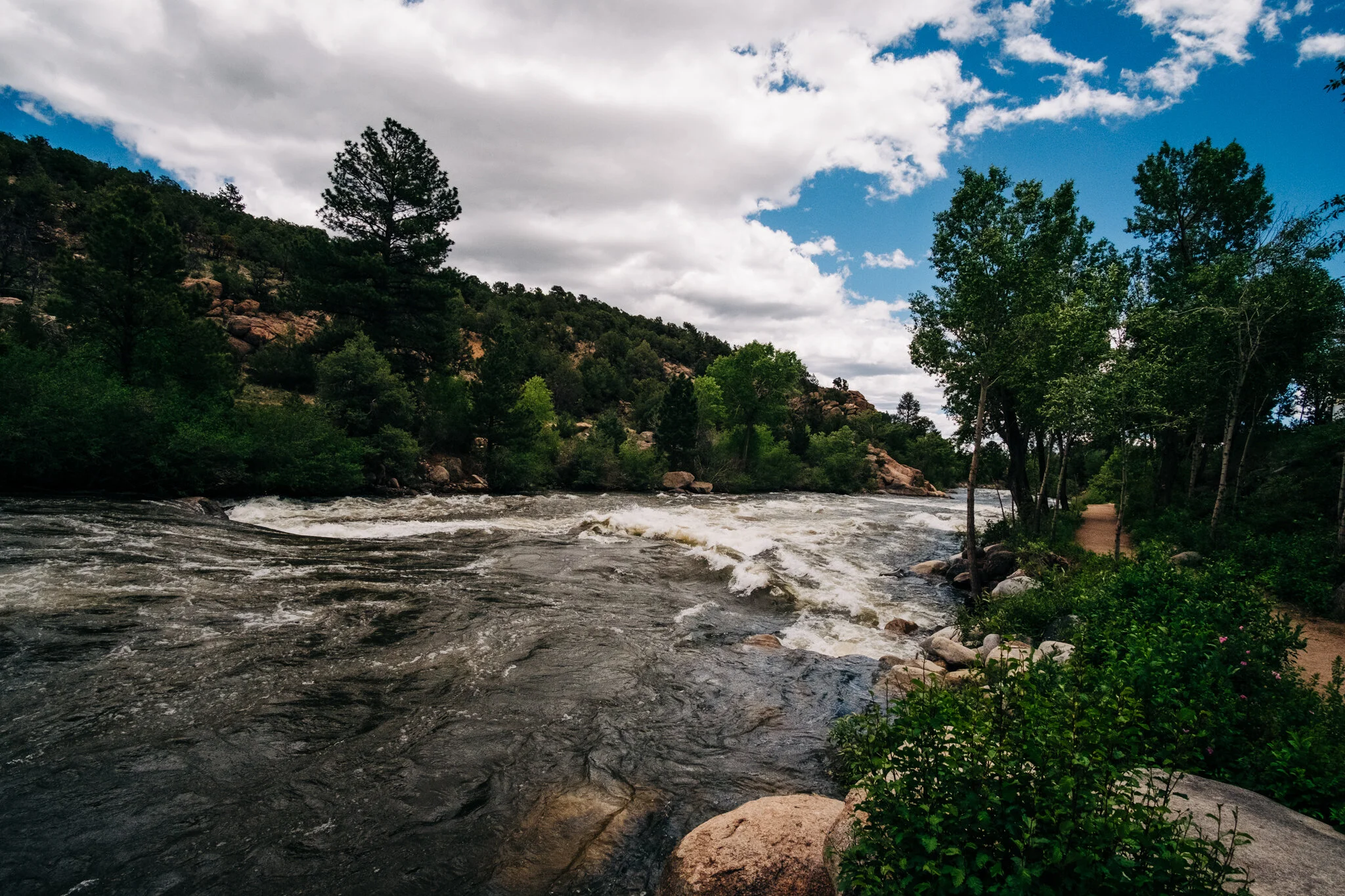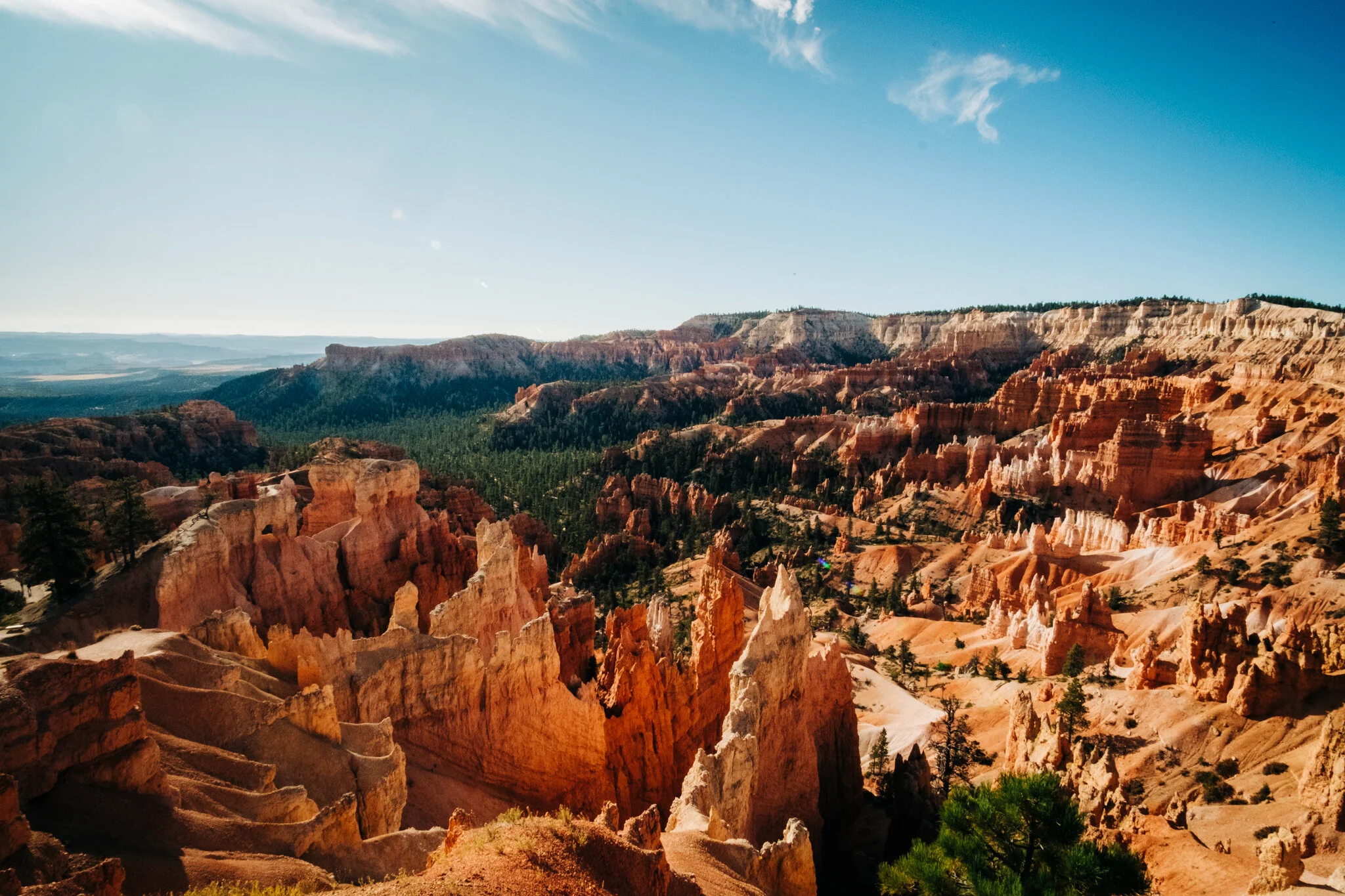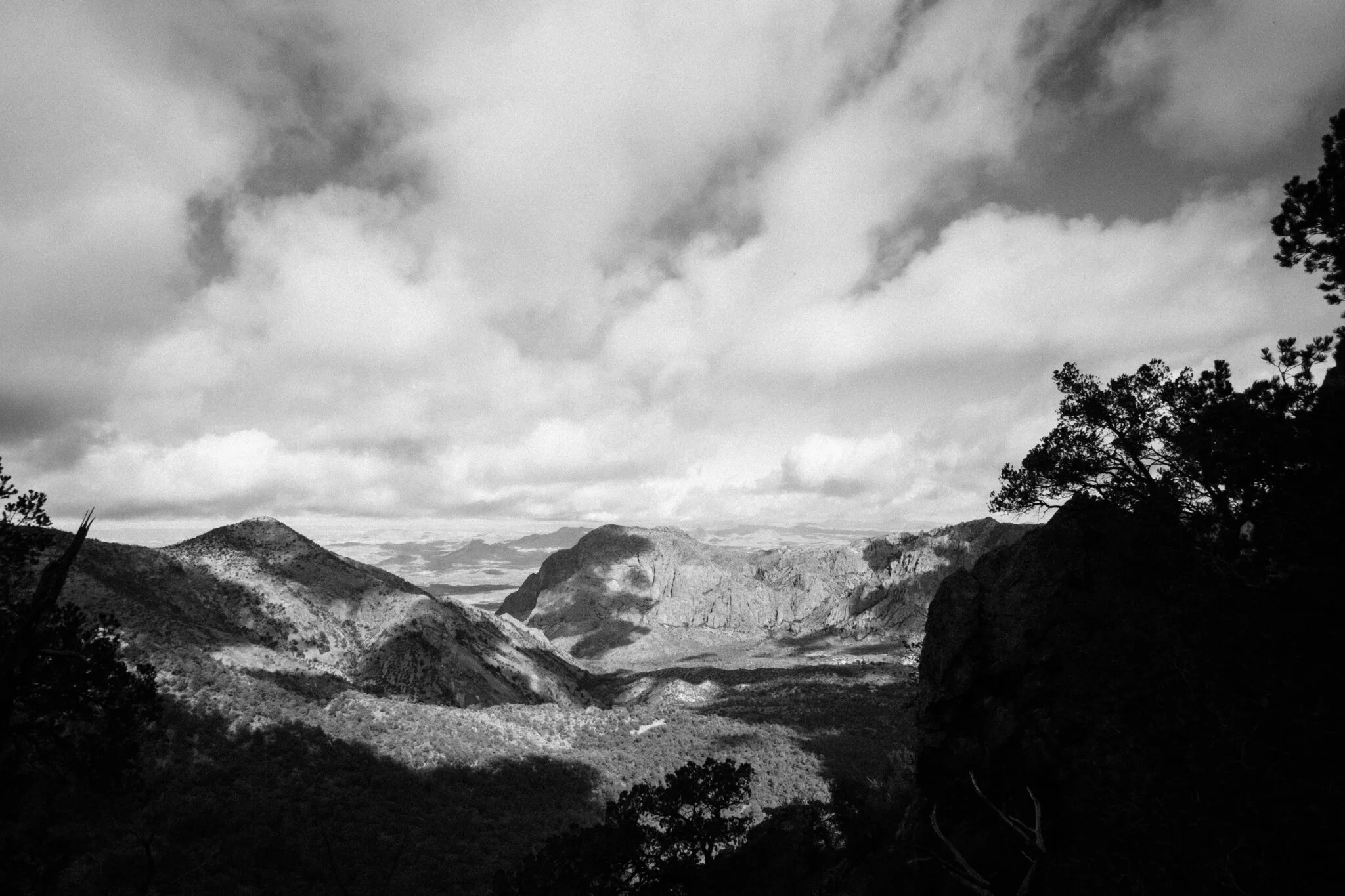The Infamous Rafting Story
Yesterday, one of my favorite podcasts, the Dirtbag Diaries, hosted a little Friday evening Instagram Live in light of all the coronavirus madness.
It was a chance for a little community of people, however digitally connected, to meet up via social media and talk about how they were processing things, and what was keeping them grounded during all of the craziness. (Isn’t technology great sometimes?)
Among several good questions the hosts asked was, “What’s the most stressed you’ve ever been in the outdoors?”
The point of the question was to remind us that the feelings we’re experiencing during this pandemic are not necessarily new, just more drawn-out; and that perhaps looking back on times we’ve felt similarly in a more familiar context could help us deal with those same emotions now, in this weird new world.
I loved the question, but couldn’t answer it on the spot for myself. Most of my outdoor experiences have been limited to things well within my comfort zone or means of control, and I’ve generally had peace of mind knowing I could bail pretty safely and easily — even if some of that is good old ignorance-is-bliss. I wanted to be able to relate to the question, but I didn’t think I’d ever been that stressed outside.
And then, suddenly, I remembered:
The whitewater rafting incident.
When I was 21 and freshly graduated from college, I spent the summer working for a guest ranch in Colorado. I was hired on as rotation staff — spending my weeks, as the name suggests, rotating between waitressing, kitchen crew, and housekeeping duties — but was offered the chance to shift into co-leading the teen program not long after. The job mostly involved doing things I would want to anyway, just with a large group of middle and high school students and the added task of keeping them alive. It also had a more flexible schedule and felt more purposeful than, say, scrubbing toilets. I took it in a heartbeat.
Teen program activities were consistent week to week. On Mondays, we went to a local bouldering area and let kids scramble. Tuesdays were a morning hike and an evening hayride. Wednesdays, we loaded kids into fifteen-passenger vans after dark and drove to St. Elmo, a ghost town a few miles up the mountain road, and played ghosts in the graveyard in the woods. (Did we use that night to plot especial revenge on students that had given us a hard time throughout the week? Yes, we absolutely did.)
On Thursdays, though, the ranch partnered with Noah’s Ark, a local whitewater rafting company. A school bus would roll onto the grounds and collect guests, then deposit them at the Arkansas River. Wetsuits, helmets, and a quick debrief later; you were assigned a boat and guide and off you went, down the rapids.
Staff were given the opportunity to whitewater raft on our days off, too — but as paying customers. The only exception was that if enough guest teens wanted to raft, but their parents did not, a teen leader could go as well, for free, as a chaperone.
I’d gone rafting as a guest myself, years before with family. It was fun, but I’ll be honest; it wasn’t necessarily something I was hankering to do again. The rafting itself was fun, but wriggling on a damp rental wetsuit and the bus ride there and back? Not so much. And if I thought too long and hard about what we were actually doing, and how unexperienced I was in violent water, it was intimidating in a way dry-land activities were not. I deferred all opportunities to raft to my co-leader until the very end of the summer, when he insisted I shouldn’t pass up the chance. And he was right, I figured. When else in my life would I get to whitewater raft in the Arkansas River Valley for free?
And so that is how, on July 24, 2015, I found myself boarding a raft as the surrogate parent of five of the weirdest teenagers I have ever known.
Seated front right was a 15-year-old boy whose primary concern was the GoPro he had affixed to his helmet and insisted on adjusting every sixteen seconds or so. To his left, another boy his age whose commitment to his personal brand meant he had refused a wetsuit and would be co-piloting us in a rolled-sleeved, button-down, pastel plaid Vineyard Vines shirt; and I let him, because I was not really his mom, and it was interesting to me, and I thought maybe it would teach him an important life lesson, like “water in the mountains is colder than water in whichever Carolina you hail from,” or “put on a wetsuit anytime a professional river guide tells you to do so.”
In the second row seats were a sixteen-year-old girl and boy who had met at the ranch on Sunday and had fallen so in love they could not take their eyes off each other, even to avoid smashing into a boulder field in class four rapids, so help me God.
And in the third row was a precious, enormous man-child who always seemed to be half-wherever-we-actually-were and half in some beautiful daydream, which is awesome for an activity that requires prompt, decisive action; and me, back left, beginning to realize just exactly what I’d signed up for.
Right behind me, in the very back seat, was our guide. In a sea of college-aged coworkers, he was in his late twenties. I remember thinking he was old for his job. After he asked me what grade I was in and stared at me, blankly, when the kids laughed and informed him that I was their leader, it became clear he thought I was young for mine. He also informed us that he was feeling pretty sick, to which I whirled around with already-building alarm and asked, “Seriously?”
“Yeah, I could puke any minute,” he shrugged. “Okay, guys—”
And he launched into his instructional speech as we floated down the river, approaching our first set of rapids. When to paddle, how to paddle, when to stop, and the words that cued each. The importance of listening. The importance of doing.
“Got it?” he asked.
“Got it,” I said. All by myself.
GoPro boy adjusted his GoPro. Romeo and Juliet never heard a thing. “This is so beautiful,” the boy next to me exclaimed, gesturing to the valley around us with hands entirely void of a paddle.
“Okay, go,” our guide suddenly shouted at the top of his lungs, aiming for a practice round in the first, small section of whitewater. He yelled cues with authority. I and — to his credit — button-down boy were the only ones who followed. I heard our guide curse under his breath as we hurtled to the exact spots he was trying to avoid and strained against his oars to wrest the raft out of them. We hurtled toward boulders. Juliet screamed. Everyone screamed. I am so annoyed that this is how I die, I thought.
Miraculously, the guide plus two paddlers were enough to spit our raft out right-side up at the end of that first run. The guide was panting. His eyebrows had furrowed so intensely they were no longer visible behind his sunglasses. There was a brief pause.
“NOW DOES IT MAKE SENSE,” he bellowed, “WHY IT IS IMPORTANT TO DO WHAT I SAY?”
Amazingly, it did not. Or it did, but it was too late. Or it did, but not to everyone all at once, at the same time, which is a major key to rafting success.
Every rapid we approached was a blind rush of panic and flailing paddles. We reached a flat area towards the end and our guide slumped.
“This is the part where I’m supposed to tell you if you want to get out and swim, you can,” he said, his tone of voice clearly indicating that he did not want any of us to. The boy seated next to me took him up on it anyway, popping out of his seat into the water and coming up sputtering from the cold.
“Oh — oh my go—” he gasped, immediately grabbing for the raft and trying to get back in. Easily twice my size, it took me and the guide ten minutes of concerted effort to pull him back over the side, beached-whale-style in his life vest and gear.
“This is so beautiful,” he proclaimed.
To this day, I don’t know how we managed not to flip or have anyone go overboard in one of the rapids. At every moment of the trip, I was sure it was going to happen. Somewhere near the aforementioned swimming area, the company had a photographer take photos of each raft, and I have ours saved on my phone even now. Remarkably, even on the flat, our blurry faces still look gripped, and not one of our paddles is coordinated. We essentially punted the entirety of Brown’s Canyon and lived to tell the tale.
Late that night, as was our custom, the ranch staff gathered in the kitchen to catch up on our days. I was perched on a countertop with a bowl of cereal when a conversation between two of my coworkers across the room caught my attention. They were giggling about the raft guides they’d overheard at the coffee shop earlier — a few had wandered in and were talking about a group one of them had guided that afternoon while they waited for their drinks.
“Apparently it was the worst group he’s ever had in his life,” my coworker snorted.
“What, uh… what all did he say, exactly?” I probed casually; already pretty sure I knew the truth. My coworkers launched into a dramatic, comedic retelling of the river guide’s account with none other than… my boat.
The rest of the staff’s response to learning that I was, in fact, the captain of what was apparently the ultimate junk show in Noah’s Ark history propelled the story to legendary status. On a weekly basis, for the rest of the summer, I was asked to retell it — in those late-night kitchen rendezvouses, around bonfires, at mealtimes. The fact that they knew each of the kids and could better imagine their faces and demeanors throughout the event gave it an extra level of hilarity. I would end up crying with laughter by the end of it, myself; always increasingly amazed that it hadn’t turned out worse, always a little more grateful it had been so epicly bad.
It was the kind of story that gave us hope in the mist of other junk-show moments throughout that summer. This might be bad now, but it will be funny later, became a sort of hopeful refrain.
The very last week of the summer season, there were few enough teens at the ranch that I was back on waitressing rotation, and we hosted the end-of-the-year staff banquet for none other than Noah’s Ark.
My bosses by then, too, had heard the story, and kept a careful eye on the dining room to see where my guide ended up so they could assign me to his table. I walked up, tapped him on the shoulder, and handed him a pitcher of iced tea.
“Remember the worst raft you ever guided?” I grinned.
I wish you could have seen his face.
I’m in no way suggesting that this pandemic will ever be a joke the way my infamous rafting experience is. It’s serious. It’s sad. It’s hard in a lot of aspects for a lot of different people.
But it did help me to look back on a moment that felt scary when it was happening and remember that I survived. It made me think of other memories like it — more serious, less funny, but deeply significant. That entire summer, in fact, was a tough and weird one for me; and it taught me that I can keep going and that good can come from bad, in so many different ways.
We may be stuck inside right now with an uncertain future, but I hope some beautiful, or funny, or important stories come from it. They almost always do.
And if nothing else, I hope this makes you laugh. Or, if you’re looking for an easy way to add some adrenaline to your next rafting trip, encourages you to invite some teenagers along. You won’t be disappointed.






